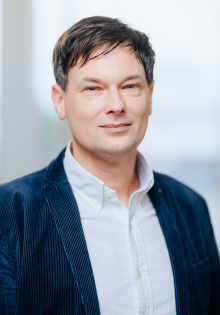Paderborn University, Hanover and Kassel joint project receives millions in funding
Whether in the natural sciences, engineering or economics, many students find maths lectures particularly challenging. This often leads to students changing subjects or even dropping out. Scientists at Paderborn University, Leibniz Universit?t Hannover and the University of Kassel now want to counteract this problem: In the "HALMA" project ("Inter-University Adaptive Learning Pathways in Mathematics"), they are developing concepts to support first-year students individually and prepare them more specifically for the technical requirements of their respective degree programmes and professional fields. The "Innovation in University Teaching" foundation, which is funded by the federal and state governments, has earmarked a total of around 6.5 million euros in funding for the project. The project starts in October.
Holistic approach for a successful course of study
"More than 40 per cent of all students in Germany are enrolled in a subject area in which mathematics is a central component - for example mechanical engineering, business studies or a teaching degree. However, the content of general mathematics lectures often does not match the specific requirements of the individual degree programmes," explains Prof. Dr. Andreas Eichler from the University of Kassel, who is coordinating the overall project. "The basic mathematical knowledge taught at school is also very different. That's why we want to develop concepts that specifically support students in learning according to their knowledge and strengths, building up the necessary skills and preparing them specifically for their future careers," adds Prof Dr Reinhard Hochmuth, who is leading the project at Leibniz Universit?t Hannover.
To ensure sustainable success, the concepts are to be anchored in the respective study programmes in the long term. There are already concrete ideas for implementation: for example, the transition from school to university is to be addressed through the needs-based integration of preliminary courses into the regular course of study, so that students can decide for themselves whether they want to catch up on the basics or delve deeper into specific topics. In addition, programmes on different reading and learning strategies are planned. Furthermore, the individual needs of students and the expectations of lecturers should be better harmonised. Lectures and exercises are also to be designed in such a way that they take into account the requirements of various future professional fields. "Many individual measures are already known," says Prof Dr Michael Liebend?rfer from the University of Applied Sciences Schw?bisch Gmünd, who will be supporting the project. "The outstanding thing about 'HALMA' is that all parts are linked together so that students can better find the right path for them."
Joint competence centre as a basis
The Paderborn Universities of Paderborn, Hanover and Kassel have been cooperating in the joint "Centre of Excellence for Mathematics Education" (khdm) since 2010. The idea for the "HALMA" project stems from many successful sub-projects and the expertise developed by the khdm, particularly in relation to the transition from school to university. "Three perspectives were taken into account when selecting the projects for funding - those of the teaching staff, the university management and the students themselves. We are particularly pleased that our project achieved the highest score in all three reviews," says Prof Dr Sebastian Rezat, who is in charge of the project at Paderborn University. "Of course, anchoring the project in the study regulations is a complex and long-term process, but we are convinced that the increasing satisfaction of all those involved in the maths courses will pave the way."
This text was translated automatically.


